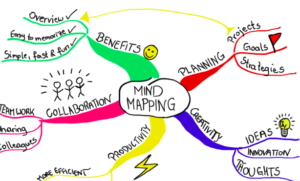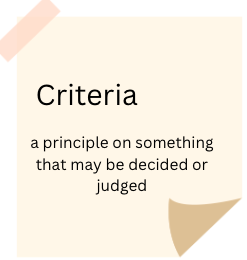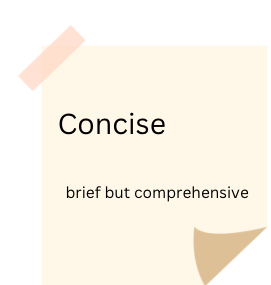Mojza Blog
The most effective study techniques
by Alia Naeem | 05 Feb 2023

When it comes to studying, just memorizing often won’t do the trick to get everything inside your brain. Fortunately, there are numerous study techniques to help you, and we’ve listed some of the most effective ones.
Mind Mapping
Using a mind map is a simple approach to brainstorm ideas naturally without worrying about organization and order. It enables you to visually organize your thoughts to aid in analysis and memory. Best of all, it works wonders for a visual learner. You might have heard before that a picture speaks a thousand words.
A mind map is a diagram that represents concepts or ideas. You have to write the topic or concept in the middle of a page and connect sub topics and major ideas and continue to branch it out. An example of a mind map :-

Color Coding
It can be considerably simpler to memorize and recall key concepts from a class by color-coding your notes, which also makes them more visually appealing. A recent study has found out that color can improve a person’s memory’s performance.
It is entirely up to you whether to underline or highlight certain elements with color. You can color-code them based on certain criteria, such as red for critical information and pink for key points. You can sort through your notes with this. Regarding organization, it is suggested that you organize chapters based on color.

Feynmann Technique
The Feynman approach is a conceptual model for communicating information with concise ideas and simple language. Basically, you take a concept or a topic you recently learned and convey that same topic in your own words and see if the basic concept remains the same. It is based on the idea that: “if you want to understand something well, try to explain it simply”.

The Pomodoro Technique
You might have heard of the Pomodoro technique; it’s a well known studying method and quite effective at that. You break your work into parts, usually of 25-30 minutes, which are punctuated by short breaks.
First, pick a topic or chapter to study , and then set a timer of 25 minutes. In this time interval, you study with no distractions, and complete focus. After the timer is up, reward yourself with a quick five-minute break. Repeat the process 3-4 times and then take a longer break of 30-45 minutes.
It was found that breaking large tasks into smaller manageable time units is highly effective for studying. It makes sure you retain the knowledge, without tiring you by studying constantly for several hours.
The Leitner System
This is a studying method which uses some boxes and flashcards. These flashcards can have written questions of a certain topic or a whole subject altogether on them; basically anything that would help you with memorizing and understanding a certain thing.
You can have several boxes, ideally four or five, with all the flashcards placed in Box 1. If you get a flashcard right, you move the card to the next box, and vice versa. If you get a card incorrect, it moves back a box ( if it’s already in Box 1, it should remain there ). By the end of it, you can decide how often you need to revise each thing, like:
Box 1 Revise Daily
Box 2 Revise every 3 days
Box 3 Revise every 5 days
Box 4 Revise weekly
It’s up to you to decide how often you should revise a certain thing. The concepts on the flashcards that end up in the furthest box are already practiced and need less revision time, and vice versa.
Explain It To Someone Else
Explaining what you recently learned is a great way to identify if you have properly understood the concept or not. It takes the Feynman Technique by explaining it to someone in your own words in a simpler way and ensures you understood the concept.
It is advised that you teach the specific concept to someone younger than you or someone who is unaware and unlearned in that topic. After you’re done teaching it to you, ask them questions regarding it and whether or not they understood the whole topic. If they are successful in recalling what you taught them, it confirms that you successfully understood that topic.
Write it down
Often, simply memorizing won’t do the trick, and you’re likely to forget what you just memorized in a short period of time. Writing down what you need to remember might be more time-and energy-consuming, but it is a much more effective way than simply memorizing something orally, and putting both methods together is even more so.
You can write what you recently memorized and write answers to questions of that topic. Since writing is done manually, it is more likely to be stamped in your memory.
These seven were some of the most effective methods for studying. These techniques are for those students who all learn in a different way, whether that’s drawing it out, spending your time effectively, teaching it to someone else, or ways to memorize something efficiently, all of it ensuring that these are engraved in your mind and stay there.
Acknowledgements
Author: Alia Naeem
Recent
Mojza
About Mojza
Mojza is a student-led organisation aiming to provide quality resources for Cambridge students.
Other than such weekly blogs, Mojza offers resources for your O levels, IGCSE, and A levels journey. We have notes from reputable teachers, our own original notes and a library of other helpful websites and resources!
Check out our home page!
Published: 5 February 2023
Last Updated: 19 July 2023
Written by Alia Naeem
